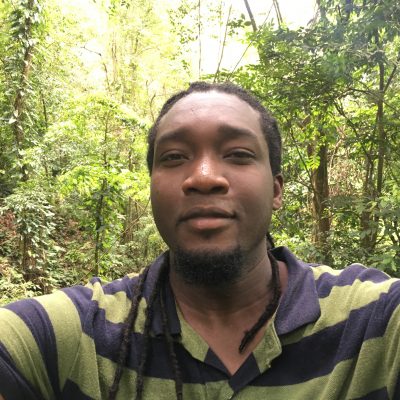Postdoc Spotlight: Kawasi Lett

September 17, 2019
Kawasi Lett is featured as part of Cornell’s Postdoc Appreciation Week 2019.
Kawasi Lett is from Diego Martin, Trinidad and earned his B.S. in biology pre-med at CUNY Medgar Evars and Ph.D. in biological sciences-neuroscience at the University of Missouri-Columbia. At Cornell, he conducts research in the field of biomedical engineering.
What is your area of emphasis? Why is this work important?
I have been trained in neurophysiology, molecular biology, and immunology. My research pursuit is the repair and development of the nervous system. Advances in genetics, optics, and microscopy have made imaging and manipulating neural circuits in live model systems more accessible and cost-effective.
What inspired you to choose this field of study?
One of my inspirations was when I first recorded the electrophysiological activity of a neuron and was able to observe and manipulate it in real time. As I continued in science, I wanted to understand the fundamentals of human locomotion, behavior, and diseases of the nervous system.
How has your background influenced your scholarship?
My parents have always stressed the importance of education and excellence and worked incredibly hard to provide my brother, sister, and me with opportunities that they did not have. When we migrated to the United States, I was exposed to science research as an undergrad, which provided me with the opportunity and training to address important questions that affect human health. I am now able to work with other scientists and physicians to make an impact in understanding neural circuits and treating neurological diseases.
What hobbies or activities do you enjoy in your spare time?
I like road and trail biking as well as hiking. In addition, I plan to buy another motorcycle for long distance trips. The best time to ride is in the rain! I also enjoy cooking and playing classic video games.
Why did you choose Cornell?
I chose Cornell for the opportunity to interact with world class researchers who published the fundamental research in neuroscience and multi-photon microscopy that inspired me early in my graduate career.
What’s next for you?
My aim has always been research and teaching in an academic setting and expanding my network to people in various fields. Although, recent events in the past few years have made me think about medical school and utilizing what I have learned in in my research career as a medical scientist.
Do you have any advice for current graduate students?
There will always be challenges in science, especially when venturing into the unknown to generate new knowledge. Stay grounded and positive in the face of those challenges and maintain a good work/life balance. Do not take just one person’s advice.
